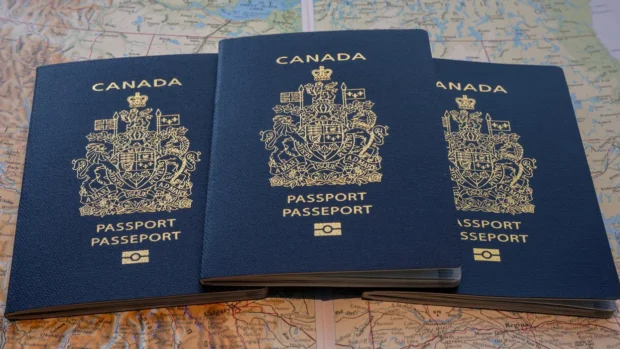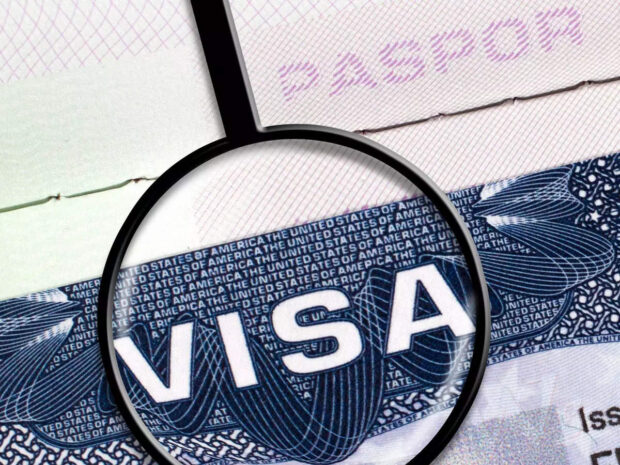Looking to travel to Europe but not sure what documents you need as a Canadian citizen? You’re in the right place! In this blog post, we’ll go over everything you need to know about getting your travel documents in order before your trip. We’ll cover things like passports, visas, and other important documents you’ll need to have with you when traveling to Europe. So whether you’re planning a trip for business or pleasure, make sure you’re prepared with all the right paperwork. Read on for more!
Passport

Assuming you have a Canadian passport, it is valid for travel to all countries in the European Union as well as Iceland, Liechtenstein, Norway and Switzerland. Your passport should be valid for the entire duration of your stay in Europe. If your passport expires while you are in Europe, you may not be able to return home unless you get a new passport. Make sure to check the expiration date on your passport before you leave Canada.
If you do not have a Canadian passport, you will need to get one before you can travel to Europe. To get a passport, you will need to submit an application form along with two photographs of yourself, proof of Canadian citizenship and a valid piece of government-issued photo ID. You can find more information on how to apply for a Canadian passport on the Government of Canada’s website.
Once you have your passport, make sure to pack it in a safe place where it will not get lost or stolen while you are traveling. It is also a good idea to make copies of your passport (and other important travel documents) in case they are lost or stolen while you are abroad.
Visa

Visa requirements for Canadian citizens traveling to Europe vary depending on the country you are visiting. For most Schengen Area countries, Canadians can stay for up to 90 days without a visa. However, there are some exceptions to this rule, so it is important to check the visa requirements of the specific country you are planning to visit.
If you are traveling to a non-Schengen area in Europe, you may need a visa. Again, requirements vary by country, so be sure to check in advance. In general, however, Canadian citizens can usually obtain a tourist visa on arrival in most European countries. ETIAS Europe is a new visa-waiver program that will soon be implemented for all Schengen area countries.
Health Insurance

Canadian citizens when traveling to Europe are eligible for free or low-cost emergency medical services in 30 European countries. Contact the Canadian Ministry of Foreign Affairs before traveling to check eligibility. Check with your health insurance provider what they cover and what type of documents they require to reimburse you after treatment.
Diplomatic missions
Canadian embassies in Europe can assist with visas and passports, as well as provide general information regarding Canada that may be useful to tourists or business travelers planning to visit there.
In the event of an emergency, tourists can call 112 for emergency services.
Travel Insurance

As for travel insurance, it’s not required, but highly recommended. Your provincial health care will not cover you once you leave the country, so it’s important to have some sort of plan in place in case of an emergency.
At the very least, you should make sure your insurance will cover:
– Medical emergencies, including hospitalization and evacuation.
– Lost/stolen belongings, both in transit and at your destination.
– Pre-existing medical conditions (if you have any).
The best way to make sure you’re covered is to talk with a qualified agent.
Proof of Sufficient Funds
When applying for a Schengen visa, Canadian citizens must provide proof of sufficient funds to cover their travel expenses while in Europe. There are a few different ways to do this:
- Show bank statements or travel insurance that covers the cost of your trip.
- Purchase a European travel insurance policy that covers the cost of your trip.
- Get a Visa credit card which can be used to cover travel expenses while in Europe.
No matter which option you choose, make sure to have all the necessary documentation ready when you apply for your visa so that there are no delays in processing your application.
If you choose to show bank statements or travel insurance as proof of sufficient funds, you will need to provide documentation that shows you have enough money to cover your travel costs. This can be in the form of a bank statement, credit card statement, or letter from your travel insurer.
If you purchase a European travel insurance policy, you will need to provide proof of insurance when you apply for your visa. This can be in the form of a policy certificate or letter from your insurer.
If you choose to get a Visa credit card, you will need to provide proof of income when you apply for your visa. This can be in the form of a pay stub, tax return, or bank statement.
Packing Tips

– Make a list of what you need to pack before you start packing. This will ensure that you don’t forget anything important.
– Pack light. You don’t need to bring everything with you on your trip. Just pack the essentials.
– Pack clothes that are versatile and can be worn in multiple situations. This will save space in your suitcase and give you more options while you’re traveling.
– Roll your clothes instead of folding them. This will save space in your suitcase and prevent wrinkles.
– Wear your heaviest items on the plane. This will free up space in your suitcase and make it easier to carry around.
– Pack an extra outfit in your carry-on bag in case your luggage gets lost.
Conclusion
In order to travel to Europe as a Canadian citizen, you will need a valid passport and proof of citizenship such as a birth certificate or naturalization certificate. You may also need a visa depending on the country you are visiting and how long you plan on staying. Be sure to check with the embassy of the country you are visiting for specific requirements. With the proper documentation in hand, you can enjoy all that Europe has to offer worry free.

